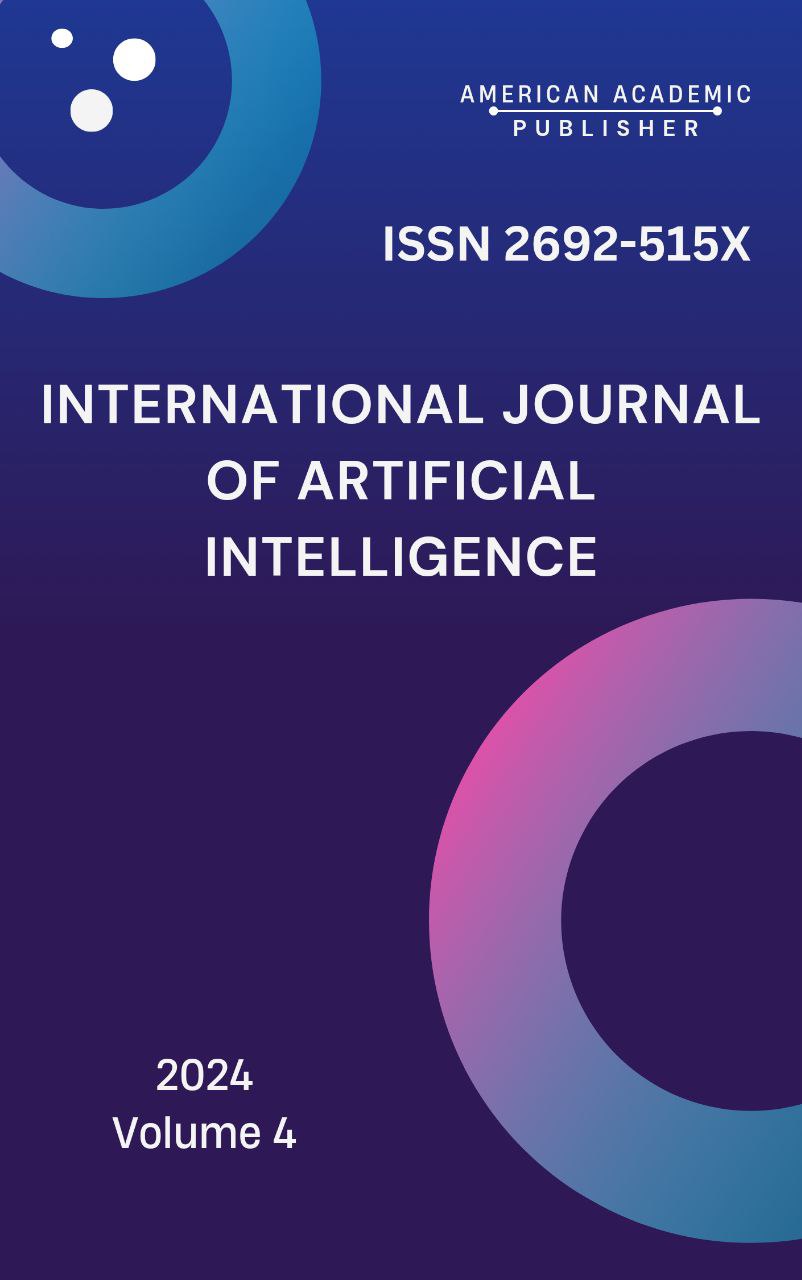 Articles
| Open Access |
Articles
| Open Access | CHALLENGES IN IDENTIFYING THE FUNDAMENTAL UNIT OF WORD-FORMATION SYSTEM AND EXPLORING WORD-FORMATION MEANING
Allmuratova G.J.¹, Yelmuratova S.A.², Allmuratova A.J , ¹Candidate of Philological Sciences, Associate Professor of the Department of Language and Literature Non-state educational institution «University-Mamun», Khiva, Uzbekistan ²Candidate of Philological Sciences, Associate Professor of the Department of Russian Language and Literature Nukus State Pedagogical Institute named after Azhiniyaz, Nukus, Uzbekistan ³Candidate of Philological Sciences, Associate Professor of the Department of Languages Private educational institution «Profi University», Tashkent, UzbekistanAbstract
The work explores the extensively studied unit of classification in derived words - the derivational type. Various definitions of word-formation types by different authors are provided. Detailed descriptions are given regarding the identification of word-formative meaning by certain dietologist’s. The identification of both general and specific word-formation meanings, characteristic of numerous dramatological studies during the last decades of the twentieth century, raises questions about the hierarchy of word-formation meaning. It prompts inquiries into the presence of word-formation meanings of varying degrees of abstraction and generality within the Russian language's word-formation system. This inquiry is interconnected with the "total" and "difference" approaches to word-formation meaning that have emerged in Russian perinatology. The first approach encompasses the semantics of the generating base in the definition of DM, wherein word-formation meaning is construed as a cumulative semantic sum of the generating base and its derivatives. Conversely, the second approach regards word-formation meaning as a recurring semantic distinction between generators and derivatives.
Keywords
word formation, word-formation type, word-formation meaning, perinatology, word-formation category, derived word, unit
References
Abdullaeva Sh. D. Slovoobrazovatel'nye kategorii kak faktor sistemnosti glagol'noj leksiki v sovremennom russkom jazyke: Diss kand. filolog. nauk. – Tashkent, 2011. – 138 p. (In Russian).
Tihonov A.N. Sistemnoe ustrojstvo russkogo slovoobrazovanija [Sovremennyj russkij jazyk. Slovoobrazovanie: problemy i metody issledovanija]. – Moscow: Akademija nauk, 1988. pp. 71 – 75. (In Russian).
Grammatika sovremennogo russkogo literaturnogo jazyka. – Moscow, Nauka Publ., 1970. – 767 p. (In Russian).
Zemskaja E. A. Slovoobrazovanie. Sovremennyj russkij jazyk. Pod red. V. A. Beloshapkovoj. – Moscow, Publ., Vysshaja shkola, 1989. – pp. 237-339. (In Russian).
Russkaja grammatika T. I. – Moscow, Nauka Publ., 1980. – 783 p. (In Russian).
Abdurahmanova A.K. Sposoby nominacii lic kak otrazhenie jazykovoj kartiny mira v uzbekskom i russkom jazykah. – Avtoref. diss… kand. filolog. nauk. – Tashkent, 2007. – 24 p. (In Russian).
Shherba L.V.Izbrannye trudy po jazykoznaniju i fonetike, T. I, Leningrad., 1958 (In Russian).
Nemchenko V.N. Osnovnye ponjatija slovoobrazovanija v terminah. Slovar' - spravochnik. – Krasnojarsk., KGU Publ., 1985. – 204 p. (In Russian).
Manucharjan R.S. Slovoobrazovatel'nye znachenija i formy v russkom i armjanskom jazykah. – Erevan., Lujs Publ., 1981. – 312 p. (In Russian).
Kim L.L. Slovoobrazovanie i nominacija. Aktual'nye problemy russkogo slovoobrazovanija. – Tashkent. Ukituvchi Publ., 1980. –279-280 pp. (In Russian).
Article Statistics
Downloads
Copyright License

This work is licensed under a Creative Commons Attribution 4.0 International License.

